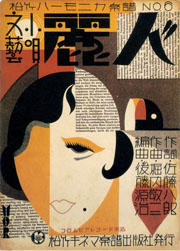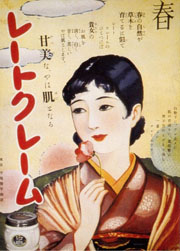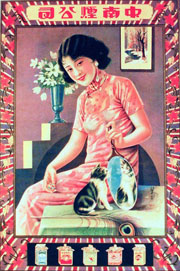Leisure and Social Change: The Transcultural Flow of Concepts, Institutions and Practices across Asia
By O’Rya Hyde-Keller. Excerpted from Research Magazine 2010
What do modern-day Japanese smokers, Qing imperial hunts, and the art of the Mughal Empire all have in common? That’s what several faculty members in Asian Studies found themselves asking in 2008, shortly after the opening of the BU Center for the Study of Asia, led by William Grimes, an associate professor of international relations and the center’s director until last summer.
In September, Joseph Fewsmith became the new director, and Grimes became chair of the International Relations Department. With more than 50 BU faculty involved, the center’s diversity—in terms of geographic regions of interest and scholarly disciplines, with everything from Turkey to China and economics to art history represented—was overwhelmingly full of possibilities.
“We wanted to know, what kinds of interests do we share? And how can we build on the synergy of all of us being in one place?” says Robert Weller, professor and chair of the Department of Anthropology. “We were looking for a topic that enough people worked on, and found interesting and fun, to pursue.”
 The point of convergence turned out to be a surprising one: leisure. The ways that people across Asia have spent their free time over the centuries was a topic that many Asian Studies faculty were already looking at—some without even realizing it. “At first you might think, I’ve got nothing to say about this topic,” says Weller, who is currently looking at the relations between religion and civil life among Chinese communities in Malaysia, China, and Taiwan. Key to facilitating collaboration across departments, he says, was encouraging researchers to “rethink what we even mean by leisure.”
The point of convergence turned out to be a surprising one: leisure. The ways that people across Asia have spent their free time over the centuries was a topic that many Asian Studies faculty were already looking at—some without even realizing it. “At first you might think, I’ve got nothing to say about this topic,” says Weller, who is currently looking at the relations between religion and civil life among Chinese communities in Malaysia, China, and Taiwan. Key to facilitating collaboration across departments, he says, was encouraging researchers to “rethink what we even mean by leisure.”
“For example, if long ago a member of the Chinese elite painted in the evening, that’s not exactly leisure because we know he had to do it to maintain his political credibility,” says Weller. “So, then, is playing golf today leisure? Leisure turns out to be this loose and sloppy concept. When you talk to other people and think about these things in a new way, it becomes really interesting.”
 Weller, together with Catherine Yeh, an associate professor of Chinese, and Eugenio Menegon, an associate professor of Chinese history and world history, both in the College of Arts & Sciences, has launched a three-year project titled “Leisure and Social Change: The Transcultural Flow of Concepts, Institutions and Practices across Asia,” with generous support from the BU Humanities Foundation. Fifteen faculty members from six departments will meet regularly to present new research and look for areas of collaboration, with visits from invited guest speakers from other academic institutions. Each year, an international workshop is planned on one of three focus areas: Leisure and the State; Leisure and Money; and Leisure, Gender, and the Generation Gap.
Weller, together with Catherine Yeh, an associate professor of Chinese, and Eugenio Menegon, an associate professor of Chinese history and world history, both in the College of Arts & Sciences, has launched a three-year project titled “Leisure and Social Change: The Transcultural Flow of Concepts, Institutions and Practices across Asia,” with generous support from the BU Humanities Foundation. Fifteen faculty members from six departments will meet regularly to present new research and look for areas of collaboration, with visits from invited guest speakers from other academic institutions. Each year, an international workshop is planned on one of three focus areas: Leisure and the State; Leisure and Money; and Leisure, Gender, and the Generation Gap.
The goal is to examine leisure from a multidisciplinary perspective, as well as explore how concepts and practices of leisure change—or don’t—across boundaries of geography, time, nationality, culture, and class. Ultimately, project participants hope to collect the scholarship produced over three years in one or two edited books.
“Not much has been done on the topic of leisure in Asian Studies,” says Menegon. “So this project will give us not only a comparative perspective, but a space in which to say new things.”
 But why study leisure activities—the things that people do in their free time—at all? Aren’t hobbies and pastimes as peripheral as they are pleasurable? Actually, suggests Weller, the periphery can often serve as a helpful mirror of what’s going on at the center. Leisure—whether it’s playing soccer or practicing calligraphy or watching television—is inevitably more than just leisure: it’s a reflection of everything from politics and economics to culture and human relations. Those connections, as well as the shifting meaning and kinds of leisure over time, make it a fascinating topic.
But why study leisure activities—the things that people do in their free time—at all? Aren’t hobbies and pastimes as peripheral as they are pleasurable? Actually, suggests Weller, the periphery can often serve as a helpful mirror of what’s going on at the center. Leisure—whether it’s playing soccer or practicing calligraphy or watching television—is inevitably more than just leisure: it’s a reflection of everything from politics and economics to culture and human relations. Those connections, as well as the shifting meaning and kinds of leisure over time, make it a fascinating topic.
“We are at the beginning, not the end,” Weller explains. “It could be that we end up with a definition of leisure, or an argument about it, which could be more important. But we can certainly work through the questions together and come up with things we couldn’t have on our own.”



